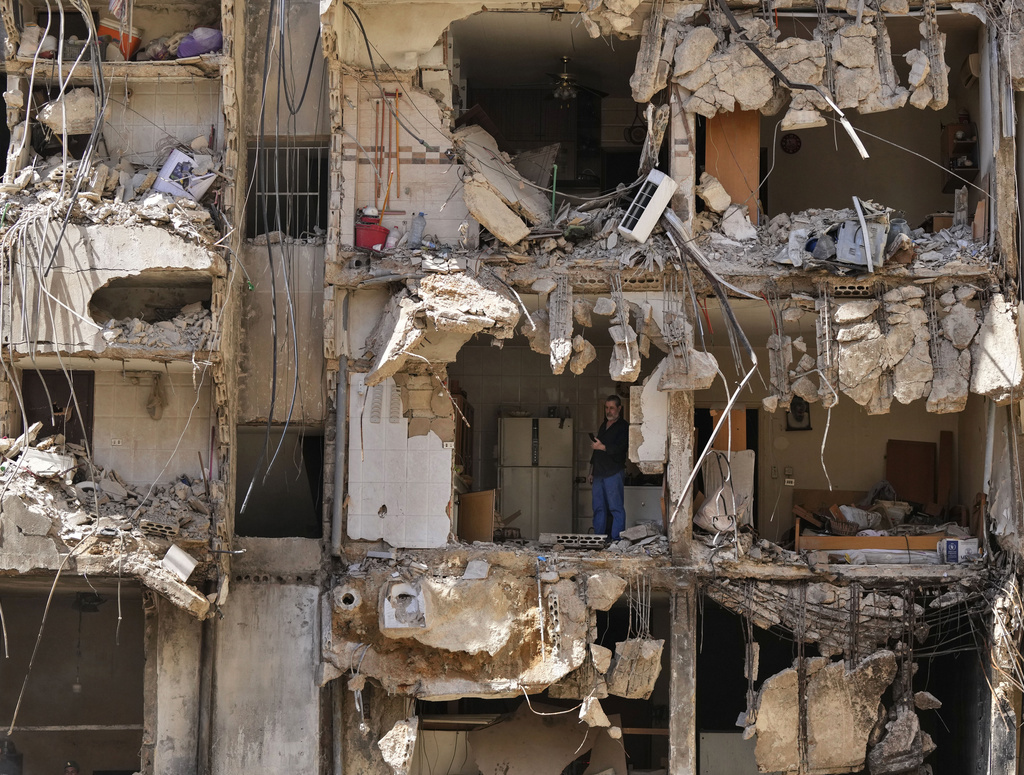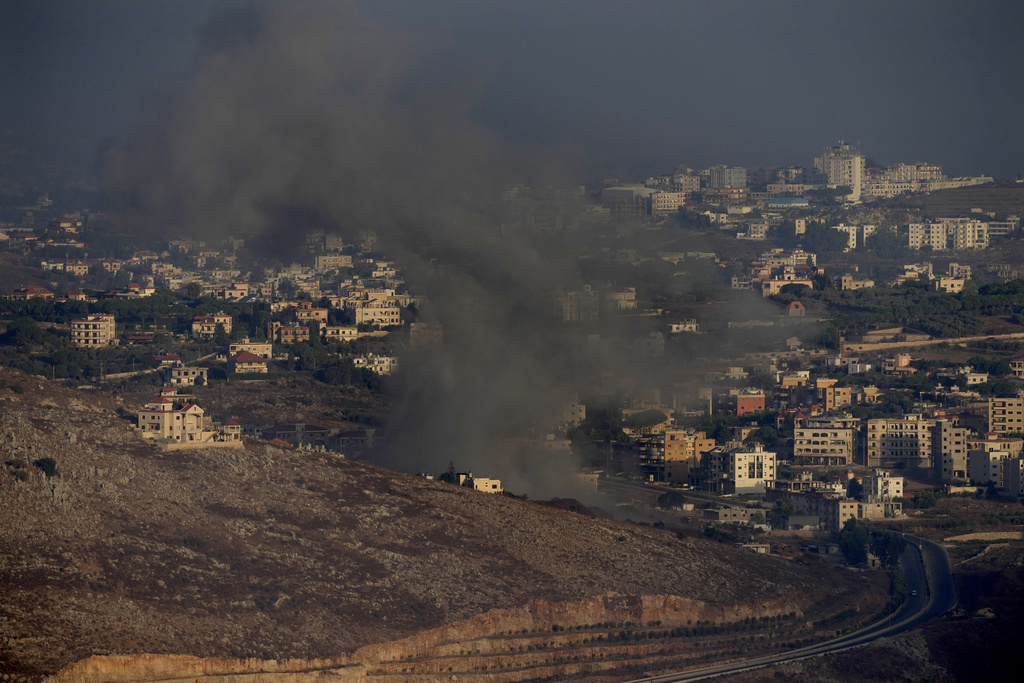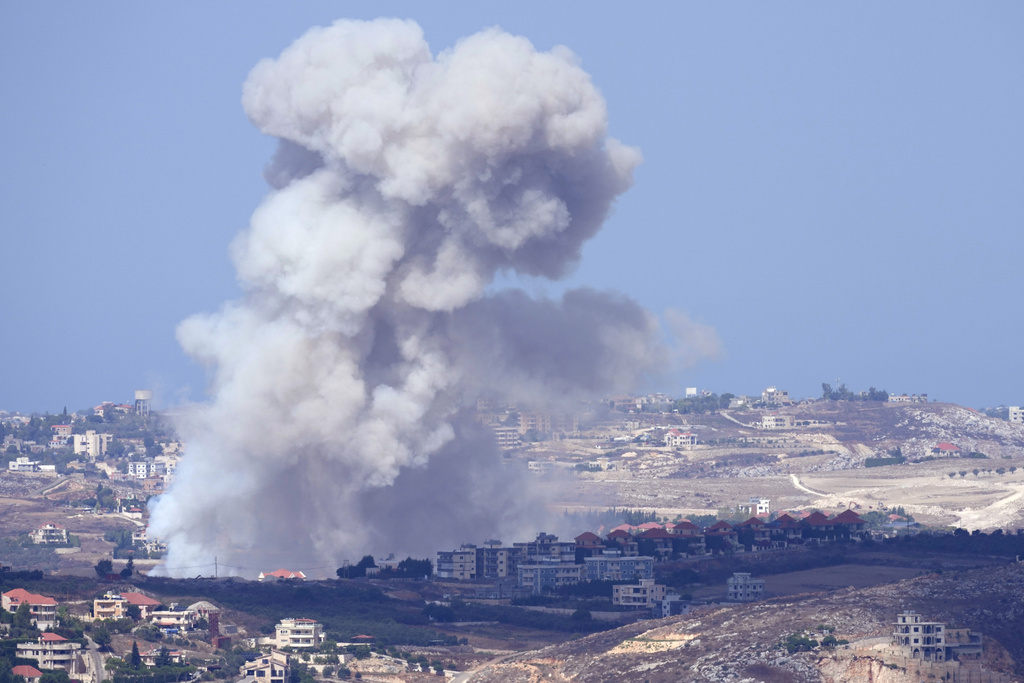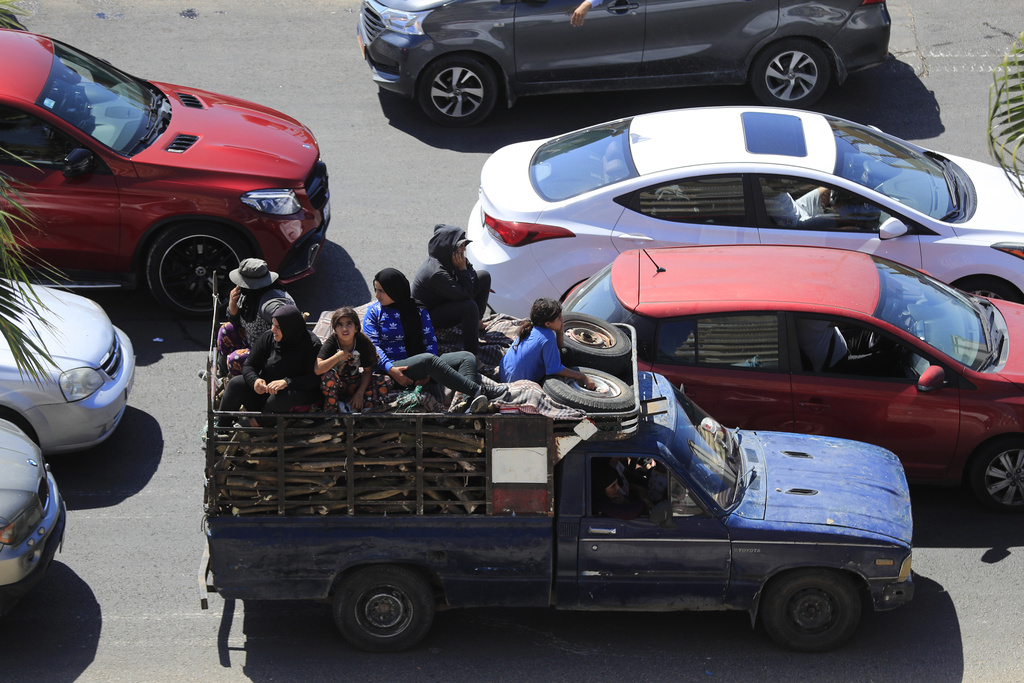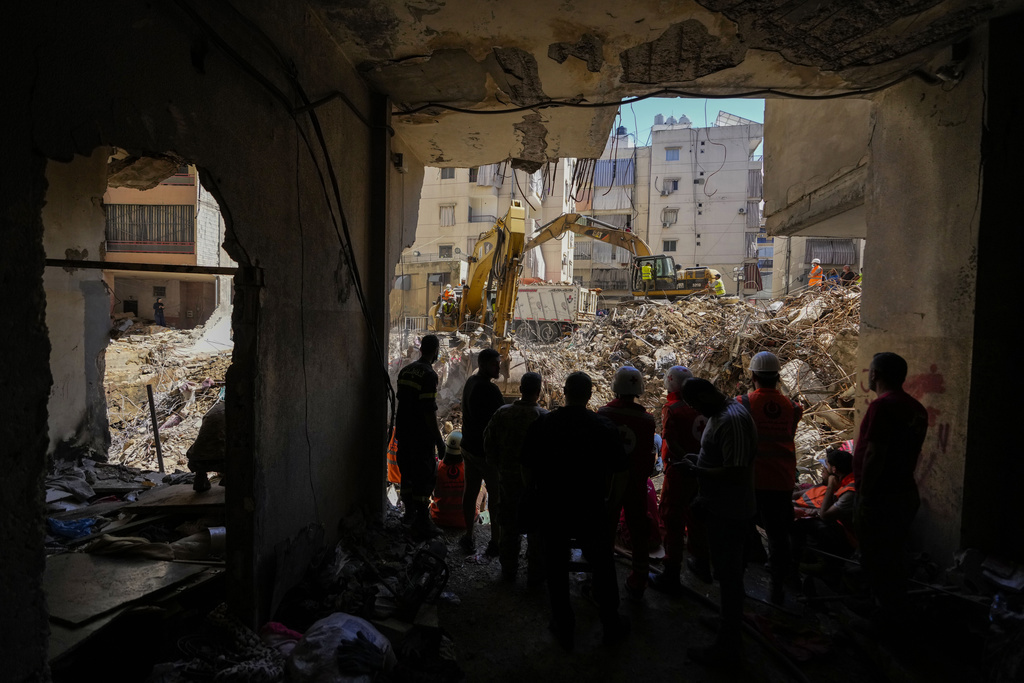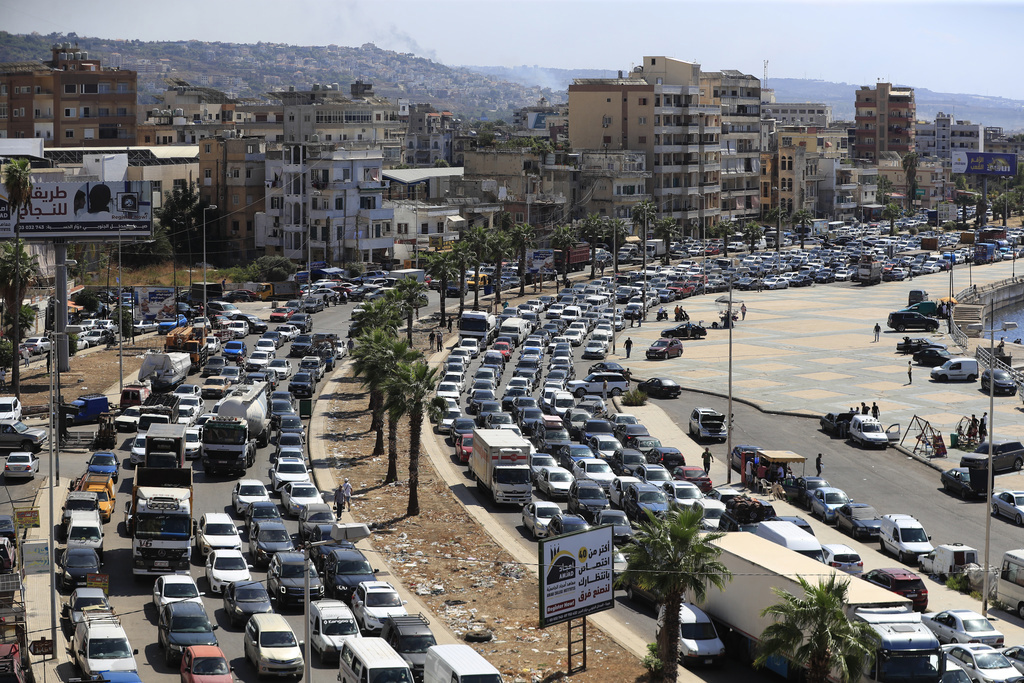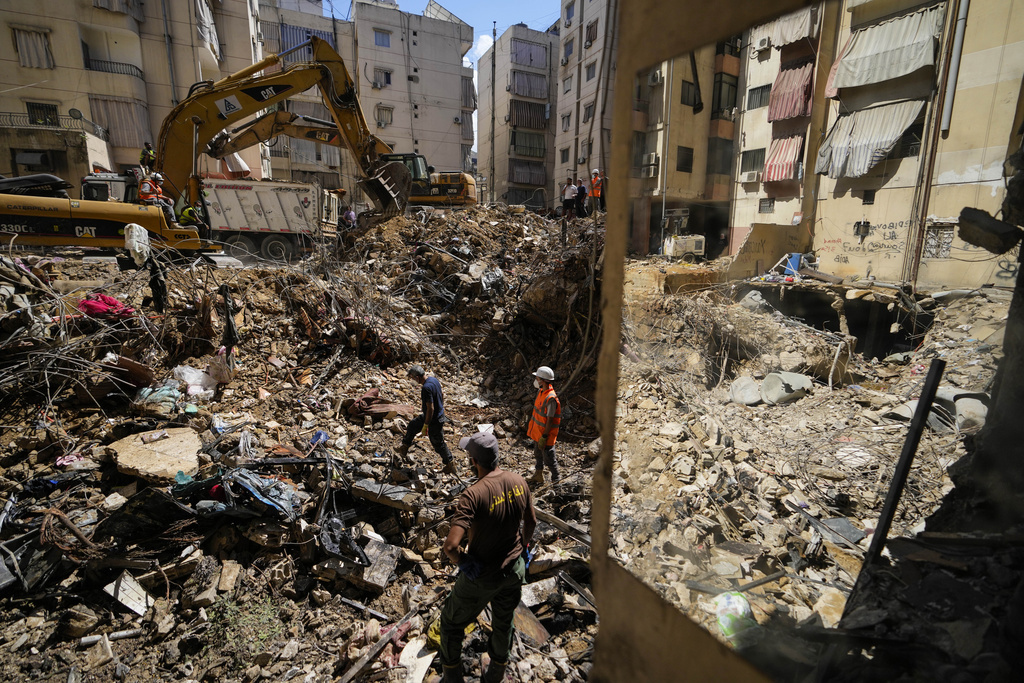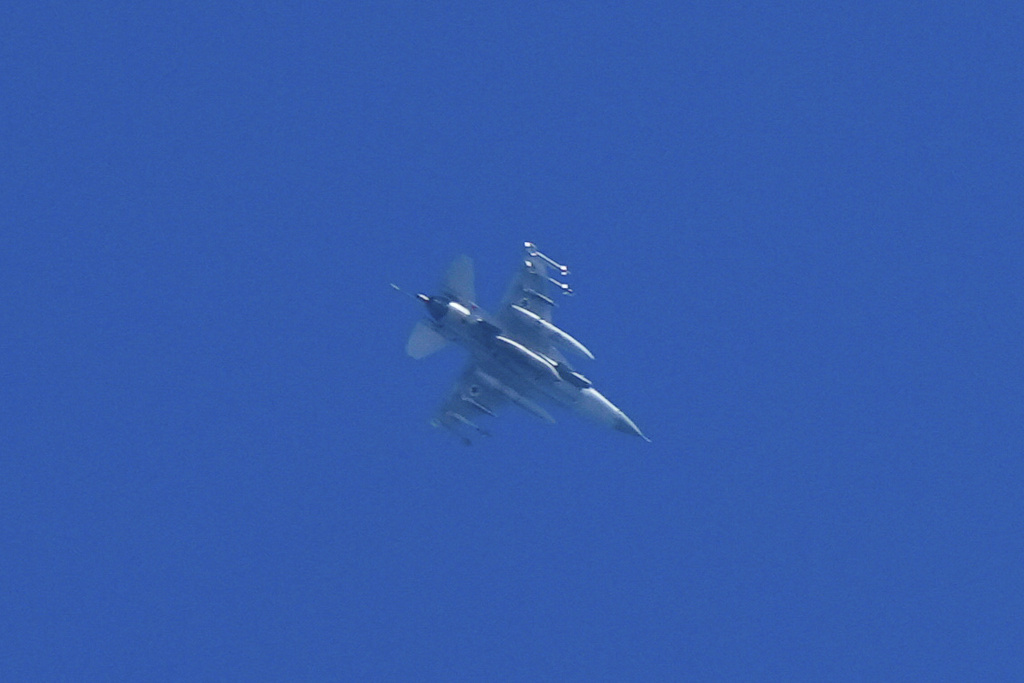Israeli strikes have killed more than 270 Lebanese in the deadliest barrage since the 2006 Israel-Hezbollah war as the Israeli military warns residents in southern and eastern Lebanon to evacuate their homes ahead of a widening air campaign against Hezbollah.
Thousands of Lebanese fled the south and the main highway out of the southern port city of Sidon was jammed with cars heading toward Beirut in the biggest exodus since the 2006 fighting.
More than 1000 other people were wounded in Monday's strikes — a staggering one-day toll for a country still reeling from a deadly attack on communication devices last week.
The death toll surpassed that of Beirut's devastating port explosion in 2020, when hundreds of tonnes of ammonium nitrate stored in a warehouse detonated, killing at least 218 people and wounding more than 6000.
In a recorded message to Lebanese civilians, Israeli Prime Minister Benjamin Netanyahu urged them to heed Israeli calls to evacuate, saying "take this warning seriously".
"Please get out of harm's way now," Netanyahu said.
"Once our operation is finished, you can come back safely to your homes."
The Israeli military said Monday evening that it had carried out a targeted strike in Beirut. It did not give details.
Lebanese Health Minister Firass Abiad told a news conference in Beirut that the strikes hit hospitals, medical centres and ambulances. The government ordered schools and universities to close across most of the country and began preparing shelters for people displaced from the south.
READ MORE: Dolly Everett's family sends message to girl's parents
The Israeli military announced that it hit some 800 targets on Monday, saying it was going after Hezbollah weapons sites.
One strike hit a wooded area as far away as Byblos in central Lebanon, more than 120 kilometres from the border north of Beirut.
The military said it was expanding the airstrikes to include areas of the Bekaa Valley, along Lebanon's eastern border, after targeting more than 300 sites in southern Lebanon.
Israeli military spokesman Rear Admiral Daniel Hagari said residents of the valley must immediately evacuate areas where Hezbollah is storing weapons.
Meanwhile, Hezbollah said in a statement that it fired dozens of rockets at an Israeli military post in Galilee. It also targeted for a second day the facilities of the Rafael defense firm, headquartered in Haifa.
As Israel carried out the attacks, Israeli authorities reported a series of air-raid sirens in northern Israel warning of incoming rocket fire from Lebanon.
READ MORE: New details emerge about prime suspect in Melbourne cold case murders
Earlier on Monday, Israel issued a broad warning urging residents of southern Lebanon to evacuate from homes and other buildings where it claimed Hezbollah has stored weapons.
It was the first warning of its kind in nearly a year of steadily escalating conflict and came after a particularly heavy exchange of fire on Sunday. Hezbollah launched about 150 rockets, missiles and drones into northern Israel in retaliation for strikes that killed a top commander and dozens of fighters.
There was no sign of an immediate exodus from the villages of southern Lebanon, and the warning left open the possibility that some residents could live in or near targeted structures without knowing that they are at risk.
The increasing strikes and counterstrikes have raised fears of an all-out war, even as Israel is still battling Hamas in Gaza and trying to return scores of hostages taken in Hamas' October 7 attack. Hezbollah has vowed to continue its strikes in solidarity with the Palestinians and Hamas, a fellow Iran-backed militant group. Israel says it is committed to returning calm to its northern border.
READ MORE: Retailers demanding personal information for electronic receipts sparks privacy concerns
Associated Press journalists in southern Lebanon reported heavy airstrikes targeting many areas Monday morning, including some far from the border.
Lebanon's state-run National News Agency said the strikes hit a forested area in the central province of Byblos, about 130 kilometres north of the Israeli-Lebanese border, for the first time since the exchanges began in October. No injuries were reported there.
Israel also bombed targets in the north-eastern Baalbek and Hermel regions, where a shepherd was killed and two family members were wounded, according to the news agency. It said a total of 30 people were wounded in strikes.
The Lebanese Health Ministry put the death toll at 182. It asked hospitals in southern Lebanon and the eastern Bekaa valley to postpone surgeries that could be done later. The ministry said in a statement that its request aimed to keep hospitals ready to deal with people wounded by "Israel's expanding aggression on Lebanon."
An Israeli military official said Israel is focused on aerial operations and has no immediate plans for a ground operation. The official, speaking on condition of anonymity in keeping with regulations, said the strikes are aimed at curbing Hezbollah's ability to launch more strikes into Israel.
Lebanese media reported that residents received text messages urging them to move away from any building where Hezbollah stores arms until further notice.
"If you are in a building housing weapons for Hezbollah, move away from the village until further notice," the Arabic message reads, according to Lebanese media.
Lebanese Information Minister Ziad Makary said in a statement that his office in Beirut had received a recorded message telling people to leave the building.
"This comes in the framework of the psychological war implemented by the enemy," Makary said, and urged people "not to give the matter more attention than it deserves".
It was not immediately clear how many people would be affected by the Israeli orders. Communities on both sides of the border have largely emptied out because of the near-daily exchanges of fire.
Israel has accused Hezbollah of transforming entire communities in the south into militant bases, with hidden rocket launchers and other infrastructure. That could lead the Israeli military to wage an especially heavy bombing campaign, even if no ground forces move in.
The military said it had targeted more than 150 militant sites early Monday. Residents of different villages in southern Lebanon posted photos on social media of airstrikes and large plumes of smoke. The state-run National News Agency also reported airstrikes on different areas.
An Israeli airstrike on a Beirut suburb on Friday killed a top Hezbollah military commander and more than a dozen fighters, as well as dozens of civilians, including women and children.
Last week, thousands of communications devices, used mainly by Hezbollah members, exploded in different parts of Lebanon, killing 39 people and wounding nearly 3000. Lebanon blamed Israel for the attacks, but Israel did not confirm or deny any responsibility.
Hezbollah began firing into Israel a day after the October 7 attack in what it said was an attempt to pin down Israeli forces to help Palestinian fighters in Gaza. Israel has retaliated with airstrikes, and the conflict has steadily intensified over the past year.
The fighting has killed hundreds of people in Lebanon, dozens in Israel and displaced tens of thousands on both sides of the border. It has also sparked brush fires that have destroyed agriculture and scarred the landscape.
Israel has vowed to push Hezbollah back from the border so its citizens can return to their homes, saying it prefers to do so diplomatically but is willing to use force. Hezbollah has said it will keep up its attacks until there is a cease-fire in Gaza, but that appears increasingly elusive as the war nears its anniversary.
Hamas-led militants stormed into southern Israel on October 7, killing some 1200 people, mostly civilians, and abducting about 250. Some 100 captives are still held in Gaza, a third of whom are believed to be dead, after most of the rest were released during a weeklong cease-fire in November.
Israel's offensive has killed more than 41,000 Palestinians, according to Gaza's Health Ministry, which does not differentiate between civilians and fighters in its count. It says women and children make up a little over half of those killed. Israel says it has killed more than 17,000 militants, without providing evidence.
FOLLOW US ON WHATSAPP HERE: Stay across all the latest in breaking news, celebrity and sport via our WhatsApp channel. No comments, no algorithm and nobody can see your private details.


